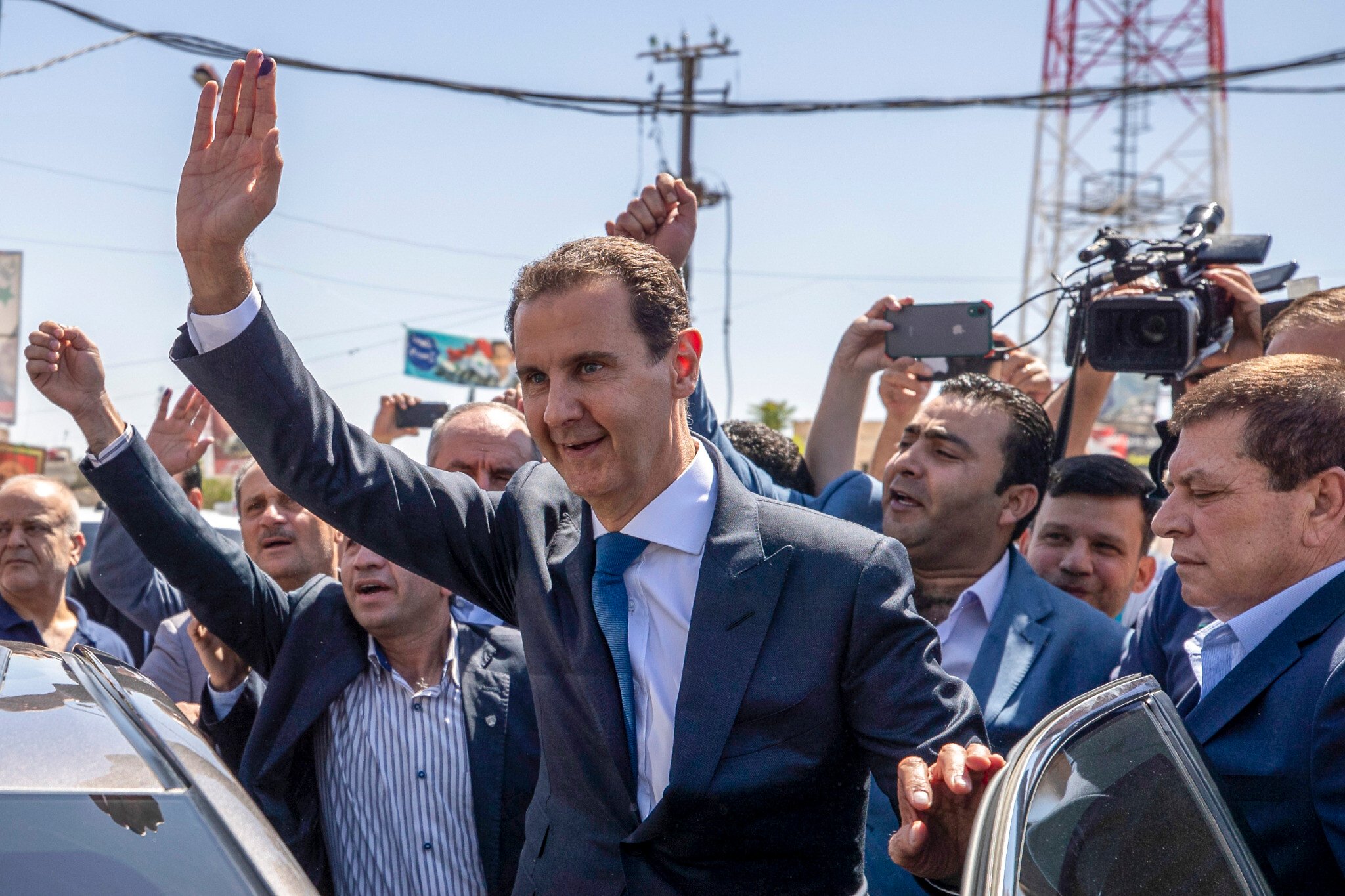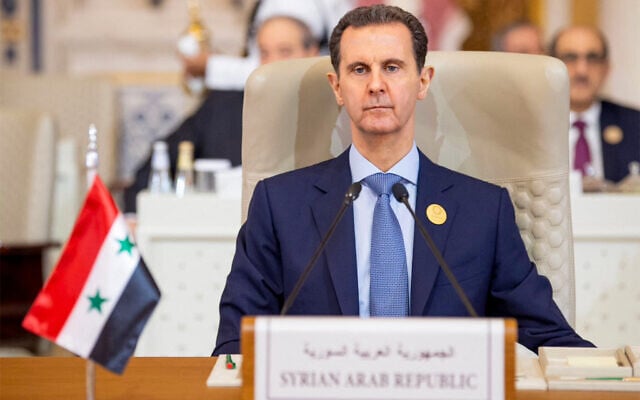



Ousted Syrian leader Bashar al-Assad on Monday made his first public remarks since he was overthrown by rebels last week, saying he had had no plans to leave the country after the fall of Damascus a week ago but the Russian military evacuated him after its base in western Syria came under attack.
Assad claimed in a statement, which was posted on a Telegram channel maintained by the Syrian presidency, that he left Damascus on the morning of December 8, hours after insurgents stormed the capital.
He said that he left in coordination with Russian allies to the Hmeimim air base in the coastal province of Latakia, where he wanted to keep fighting, but after the Russian base came under attack by drones that night, the Russians decided to move him to Moscow.
“I did not leave the country as part of a plan as it was reported earlier,” Assad said.
“At no point during these events did I consider stepping down or seeking refuge nor was such proposal made by any individual or party,” he added in an English version of his statement. “The only course of action was to continue fighting against the terrorist onslaught.”
In the post, Assad boasted of remaining in Syria throughout the country’s decade-long civil war and claimed that he never “abandoned the resistance in Palestine and Lebanon.”

“I have never sought positions for personal gain,” he said, adding that he had “always considered myself the custodian of the national project, supported by the faith of the Syrian people,” and carried this out “to the very last moment.”
“When the state falls into the hands of terrorism and the ability to make a meaningful contribution is lost, any position becomes void of purpose,” the statement added.
“This does not, in any way, diminish my profound sense of belonging to Syria and her people,” he concluded. “It is a belonging filled with hope that Syria will once again be free and independent.”
The Assad regime, which stood for over 50 years beginning with the reign of Bashar’s father Hafez al-Assad, fell last week in a stunning turn of events, after Syrian rebels launched a lightning offensive and took the capital Damascus in just two weeks of fighting.
The offensive was launched in the northwestern province of Idlib, which the Hayat Tahrir al-Sham rebel group had controlled for the past several years, after the 13-year long civil war had reached a stalemate between the regime and various rebel groups.
HTS began its attack in the last week of November, quickly capturing Syria’s second-largest city Aleppo, and pushing south from there.
Other rebel groups joined the fight, and by December 7, rebel militants had reached the outskirts of Damascus, and most of Assad’s troops either laid down their weapons or fled without a fight.

By the morning of December 8, the rebels had taken control of the city and reports began circulating that Assad and his family had fled the capital. By the next day, Russian media had confirmed that Assad had left Syria, and that he and his family had been granted asylum in Moscow.
Before then, various rumors over his fate had swirled, including claims of a fatal plane crash.
Assad’s rule was defined by brutal crackdowns on his own people, especially during the civil war that began in 2011, during which Assad’s forces used barrel bombs and chemical weapons against civilians, killing at least 200,000 over the course of the war.
His government was deposed and replaced by a transitional regime to be led by ministers from HTS until spring of 2025, when a government of national accord is set to be formed, through means that have not yet been announced.
